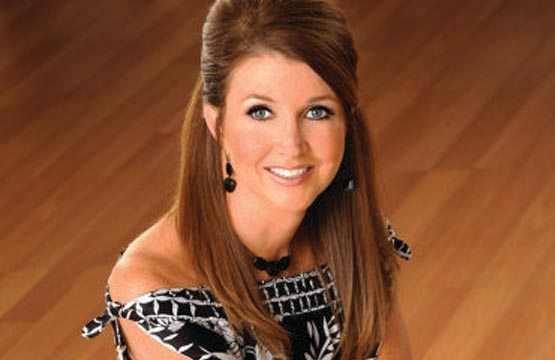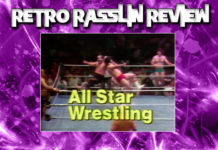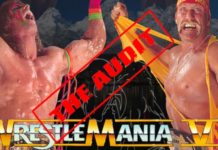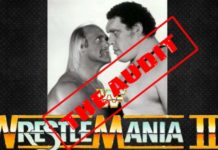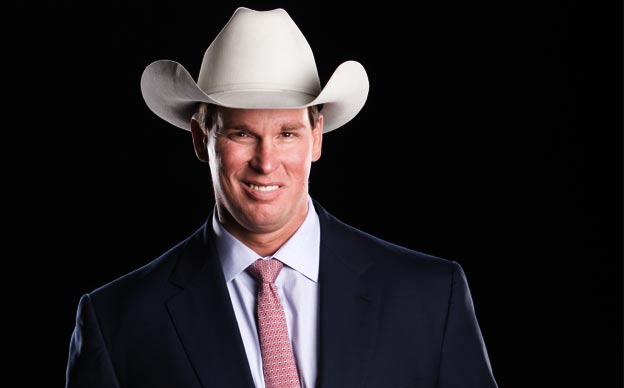Credit: Marc Middleton
WWE Hall of Famer Steve Austin interviewed TNA President Dixie Carter on the latest episode of The Steve Austin Show. The full show can be heard at this link. Thanks to my good friend Mark Adam Haggerty (@TapeTraderz) of Cheap-Heat.com for the following recap:
Steve Austin and Dixie Carter begin the conversation by saying “in all of these years” they’ve never met each other.
Dixie said that she grew up a “girly girl” but also a sports fan. She didn’t participate in any athletics however because, as she put it: “If I can’t be the best at something, then I don’t want to do it.” Dixie went to a private girls prep school and was 26 years old when she left Dallas Texas. She was a Vice President of an ad agency where was the youngest VP in company history by at least 15 years. She packed up her things “like a bad country western song” and moved to Nashville to start her career in the music industry.
Dixie describes her intelligence by saying, “I’m not a rocket scientist, but I’m not dumb. I’m like my dad who has a lot of street smarts.” After college, Dixie worked for the ad agency as well as a PR firm where she had several famous clients such as Tom Hanks and Jackie Gleason. She moved to Nashville because of a specific affinity for country music. Steve asks Dixie what goes into marketing a successful country musician. Dixie says it’s no different than wrestling: “Somebody may not be as great of a wrestler as the next person, but that Hulk Hogan sure turned that bit of charisma into quite a career. I think it’s the same thing with Garth Brooks. I don’t think Garth Brooks is the most talented vocalist out there, but he has such a talent for picking great songs and connecting.”
Dixie Carter is a Dallas Cowboys fan, and a college football fan, specifically her alma mater Ole Miss Rebels. She opted to go to the University of Mississippi because of a guy she met who was about to attend Ole Miss in the fall. He asked Dixie if she really wanted to be where everyone else was going to be, or if she wanted to try something else— and she decided to go to college in Mississippi. Steve asks Dixie about the differences between Oxford Mississippi and Dallas Texas. Steve says that he really enjoys the American South, but Oxford seems to be a little bit more pretentious, or “yuppie” as Austin puts it. Dixie describes it as laid-back and gentile, and says that Ole Miss has one of the most beautiful campuses in the country.
Dixie says that she did a lot on campus while studying at the University of Mississippi and is still involved in the Ole Miss activities today. Dixie promoted professional wrestling while attending Ole Miss, and booked USWA events courtesy of Jerry Laweler featuring Ric Flair. Dixie said she was incredibly disappointed with the performance. She sent ringside and insisted that the performers in the ring “mailed it in.” She said that it was “fake,” and turned her off to the product for a number of years. She said that there was a very good turnout, but the entire audience could feel the “fake vibe.”
Steve asks if anything intrigue her about it when she saw it at the time, and if she got a sense for how hard of the guys in the ring were working. She said, “I didn’t get that sense. If I’m being honest.” She says that prior to the second appearance of the USWA at Ole Miss, she had a conversation with USWA bookers, telling them: “This was a financial success, but if we’re going to keep doing this, it has to be better [in the ring.]” She told him that she grew up watching WCCW and the Von Erich family, and sees a number of the same personalities on the USWA roster, and if they can’t perform at the level that she really expects, she has no problem spending her money elsewhere.
Steve says that he and Dixie are “virtually identical ages” and asks if she was a wrestling fan as a kid, She says that she was a big Von Erich fan, and Austin says, “Everybody was.” They both agree that the Von Erich’s were among the most popular wrestlers in history, and Dixie compares their connection with the crowd to the electricity of “Stone Cold” Steve Austin. Dixie says that she wasn’t a diehard wrestling fan because her family didn’t have the money to go to wrestling matches. Steve asks what her father was doing at the time, and Dixie says that he was an entrepreneur. Dixie says that her dad was the kind of man that never took no for an answer, when one door closes, he didn’t look for another. He kicked the door down the closed.
Dixie says the TNA took a step back to take a step forward, and Steve assumes she’s talking about the jump to Destination America. But Dixie is referring to the roster: “When you have a Ric Flair on your roster, or a Hulk Hogan on your roster, or a Sting on your roster—to not have them on your roster, is taking a step back…”But [by having them] you’re not investing in your company for the future.” Steve asks Dixie about her country music company and asks if she is still involved. She says that she was—it was her company—and she maintained a presence for years into her TNA tenure. But as time went on, more and more artists only wanted to talk to her, which made it difficult to split her time.
Steve heads into a commercial and when the show returns, he asks Dixie about how she initially became involved with Total Nonstop Action Wrestling. She said that she had a meeting with Jeff Jarrett who was looking for a marketing/PR firm. She said that she didn’t even want to go because it was outside of her country music wheelhouse, but it was sports related so she decided to take the meeting. Dixie was involved with TNA since before it launched in 2002 from a public relations perspective, and became a majority investor when another party withdrew his support the morning after an event he would later refused to pay for. Dixie recalls when Jeff Jarrett came to her and said that he was in a financial bind and was going to try and raise some money. Dixie asked him how much he needed. Jeff asked if she knew someone, and she said, “Well, maybe. Potentially.” She said that by this point she was so impressed with the product and the work ethic of the individuals involved. She says that work ethic is very important to her, so she took the proposal to her parents company, and had TNA funded within days.
Dixie said that she was only supposed to provide a certain amount of money, but became very involved during the first few years. She said that it got “a little out of control,” leading Steve to ask what she means. She says that they were spending it, rather than investing it wisely until more money would come in. Dixie said that she was eventually put in as TNA president to help balance the budget, and became even more involved from that point on. Steve asks how transitioning into the wrestling industry has been. She said that she entered the business having respect for it, and spent quite a bit of time during the first few years, learning the ins and outs of the industry. She said that she was responsible for the deal with Universal Studios theme park, as well as a number of other early partnerships that still exist to this day. She also says that she was responsible for the Spike TV deal, through her contacts in the music industry.
Steve asks who had the book when she came into TNA. She said that Jerry and Jeff Jarrett were doing the booking, and Steve asks about Jim Cornette. She said that Jim came in later on, but never booked. Steve continued listing former bookers including Vince Russo, Dusty Rhodes, and Bruce Prichard. She says that the wrestlers of the roster didn’t know what to make of her when they first met her because she is a genuinely nice person that loves people, who’s also proficient at doing good business. Dixie said that within a few years she had the wherewithal to tell her bookers how she wanted her product to be presented. She said that she spent years listening to people say things like: “if we could just re-create the Monday Night Wars,” or “If we can just go live.” Dixie says that the television industry has changed so much in the last two decades, from the number of television channels to the amount of people watching live rather than on DVR.
Steve asks Dixie how long it took her to understand the paygrade and to determine how much talents are worth, and how much and they are not worth. She said that they ran into problems with that early on, which accounted for quite a bit of their debt: “You cannot pay as much as you were bringing in. Period. Exclamation point.” Dixie said that talent is hard for her, and she hates having to let people go: “I care about people, and this is the truth.” Dixie calls the Nielsen ratings one of the most antiquated forms of technology still in existence and feels that within a very short time there will be more accurate ways to tell how many people are watching television programs. She explains the concept of “+3” and “+7,” which refer to the additional numbers when viewers watch TV on DVR.
Dixie says that she’s never been to any other wrestling promotion’s backstage area, but wants “her backstage” to feature fun and happy people, surrounded by members of their family with their kids “throwing the football.” Steve asks what the current taping schedule is, and Dixie says that it just depends; sometimes it’s once a month, sometimes it’s every six weeks. Steve starts to compare TNA to WCW in terms of backstage politics and late booking and Dixie says that it’s nothing like WCW. “We are writing the shows further in advance than we ever have before. My problem as a marketing person is how closely the creative is kept to the vest. How the hell are you marketing something and supposed to grow a new audience base when everyone is reacting at the last second?”
Dixie says that TNA concocts their storylines via “creative summits,” wherein a number of viable parties are able to combine ideas for 6 to 8 weeks of television at a time. Dixie says the one thing she doesn’t understand is people who “go to dirt sheets and leak private information.” Dixie says that she has considered bringing in a lie detector test to find the mole, and wouldn’t hesitate in kicking her own husband out of her house if it was him.
Dixie says that being taped makes them different, and says that if they were live, they wouldn’t be able to include a number of things on their show that audiences have become accustomed to. Steve asks about the decision to go live against Monday Night Raw. Dixie says that despite failing, it proved to former WWE creative members that the television industry has changed, and that it will take more than moving to Monday to compete with the WWE. Steve says that TNA seems to have a really strong fanbase in the United Kingdom, and references British Boot Camp. Dixie says that she doesn’t think having English wrestlers on her program had anything to do with their success in the UK, owing it more to the UK crowds appreciation of the TNA in-ring product.
Steve wonders how in touch Dixie Carter is with the independent circuit, and how she’s able to find such extraordinary international talents. She says the hardest thing today is that there are so many wrestling organizations, and that a great deal of the talent is booked already. Dixie says that they really need to get their own developmental system in place. She cites Ethan Carter and Bram as former NXT prospects that TNA happened to acquire. Steve wants to know if Dixie is planning to tour again; Dixie says that house shows are very important and would like to tour more globally. She says that one of their corporate sponsors was responsible for a number of places they toured throughout the United States, and therefore TNA became oversaturated in various markets. Dixie feels that they need to let the market cool before they reintroduced themselves to those audiences. She says that the goal is to start touring again in late summer.
Steve and Dixie start to wind the podcast down, and Steve brings up Jeff Hardy’s recent motocross accident. Dixie says that while it’s tough for TV, she’s happy that it was only a broken leg. She said that Jeff will be out for 6 to 8 weeks. Dixie rattles off a number of upcoming dates, and Steve says that Dixie will be back on the family friendly version of the “Steve Austin Show” next week.
